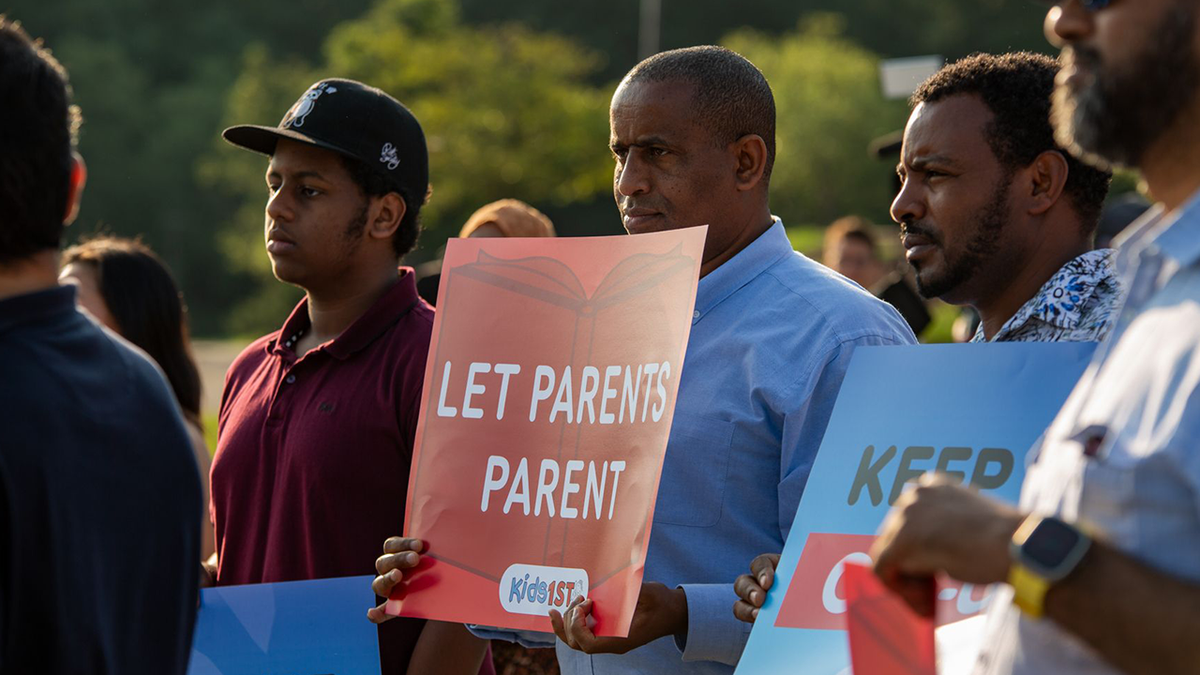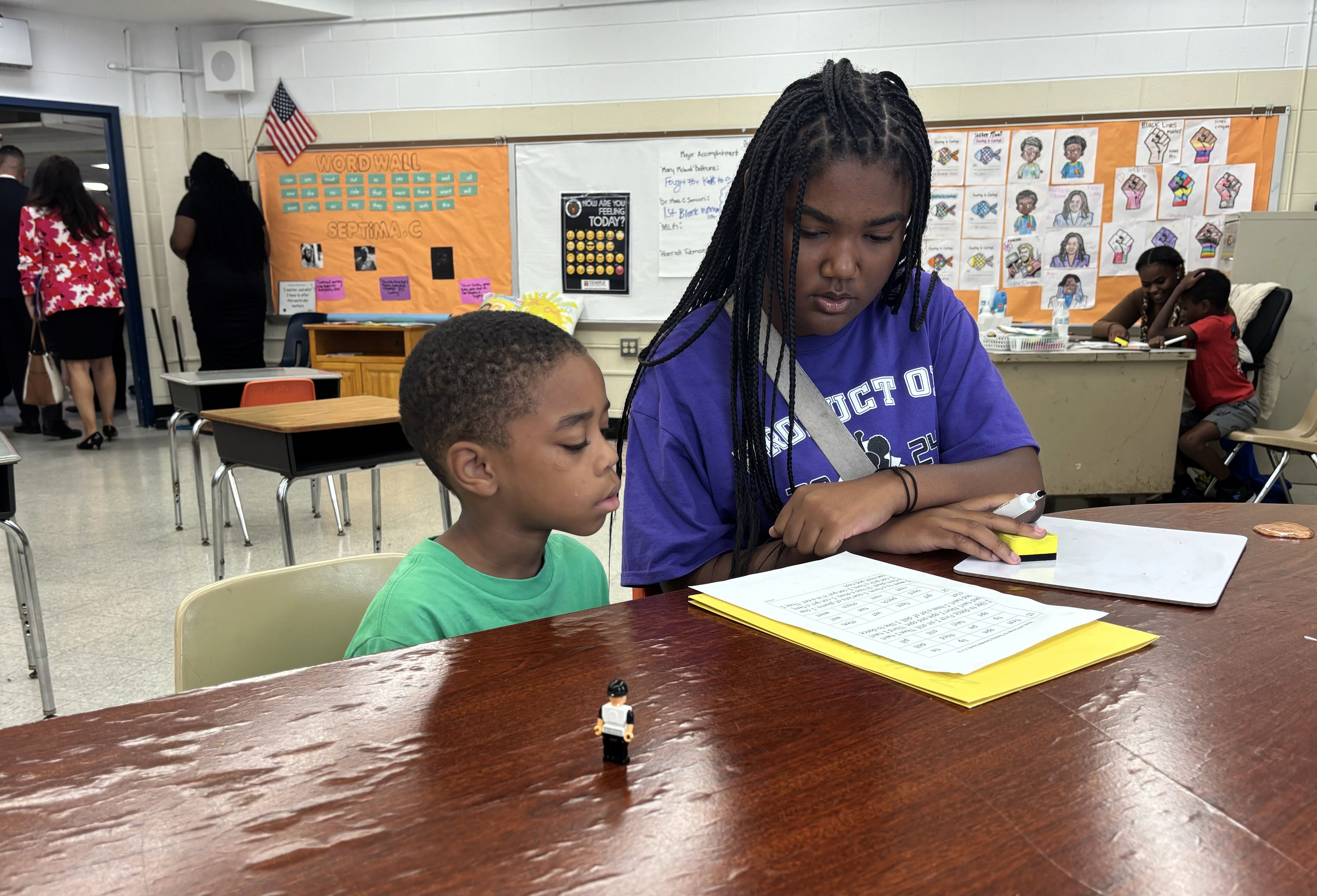
Education Reform Accelerates, Fueled by Parental Concerns
Education reform has accelerated over the past 30 years and was “fueled” by post-pandemic concerns from parents, according to a report from the Center For Education Reform (CER).
“I do think that, fundamentally, once parents have the power, as you can see, in places like Florida and Arizona, they protect it. But when they don’t, they have no idea where to start,” CER founder and CEO Jeanne Allen told Fox News Digital.
“And that’s why we’re kind of running in place,” she added. “And if we can, we can blame the unions all day long. We’re not. That’s not going to make them go away. But what we need to do is actually arm and abet parents to understand their options and what exists.”
Sustainable Development Goals (SDGs)
- Quality Education (SDG 4)
- Reduced Inequalities (SDG 10)
- Partnerships for the Goals (SDG 17)

“Not since the beginning of the education reform movement when, between 1991 and 1999, states created 36 new laws providing parents power over their children’s education have we seen such a rapid expansion in an accelerated period of time for education innovation and opportunity,” Allen said in a press release on the report.
CER’s report outlines how education programs and policies enable parental involvement in education. CER highlights that the effort was “fueled” by post-pandemic education concerns and a “renewed understanding of the power of education freedom.”
The report details that from 2021 to April 2024, 26 education reform laws were instituted to enshrine parental rights and involvement.

“The result is at least another 600,000 students having access to a variety of learning approaches across all education sectors,” the report states. “The number is more than half the amount of the students who have, according to research, exited traditional public schools in the COVID-era.”
The report also highlights a “Parent Power! Index” ranking the top five best and worst states in terms of their efforts in pushing education freedom laws.
Three of the top five states in the Parent Power! Index were Arizona, Florida, and North Carolina — states that have seen the largest influx of people moving in over the three-year period. CER added that these states’ policies resulted in more than one million students leaving “public schools to pursue other education opportunities in states that have a policy environment that enables options for parents.”
Reacting to the report, ACE Scholarships CEO Norton Rainey, told Fox News Digital that “never before have we seen higher demand for educational choice.”
“Throughout the pandemic, students faced significant educational disruptions such as school closures and uneven digital access, which led to profound learning loss across the board. These problems illuminated to parents the value of moving towards more individualized education options,” Rainey said.
American Federation For Children senior fellow Corey DeAngelis told Fox News Digital that teachers unions overplayed their hand and “awakened a sleeping giant: parents.”
“The power-hungry teachers unions fought to keep schools closed and accidentally revealed to parents — through remote learning — the socialist indoctrination in the public school system. That woke families up like never before and sparked a parent revolution,” DeAngelis said.
DeAngelis, author of “The Parent Revolution: Rescuing Your Kids from the Radicals Ruining Our Schools,” added that the U.S. has “seen bigger education freedom wins in the past three years than the preceding three decades.”
The Florida Department of Education (DOE) sent Fox News Digital a statement responding to its top ranking in the Parent Power! Index.

“This recognition is a testament to Florida’s unwavering commitment to empowering parents and providing students with educational freedom, including the ability to choose the best school for their individual needs,” Florida DOE Press Secretary Nathalia Medina told Fox News Digital.
“Florida’s dedication to universal school choice and protection of parental rights is why Florida stands first in the nation,” she added. “Under Governor Ron DeSantis’ leadership, parents have more choices than ever when it comes to choosing the best educational environment for their child.”
DeSantis has prioritized cutting “woke” elements out of state schools. Since taking office, DeSantis has enacted a Parents Bill of Rights to prohibit instruction on gender identity and sexual orientation and moved to enforce laws banning pornographic material from school children, such as LGBTQ books featuring graphic sexual content.
Since the COVID-19 pandemic, parents have taken a closer look at what is happening in their children’s schools, which caused many to speak out against certain books and curricula being taught. Critics argue these parents are censoring children and pushing to erase LGBTQ and other minority identities from schools.
Reports show that COVID-19 had an impact on the education of students at all grade levels and college. Learning loss, social and emotional development and college acceptance standards have all changed since the early days of 2020.
Fox News’ Kendall Tietz contributed to this report.
SDGs, Targets, and Indicators Analysis
1. Which SDGs are addressed or connected to the issues highlighted in the article?
- SDG 4: Quality Education
The article discusses education reform and the empowerment of parents in making decisions about their children’s education. This aligns with SDG 4, which aims to ensure inclusive and equitable quality education and promote lifelong learning opportunities for all.
2. What specific targets under those SDGs can be identified based on the article’s content?
- Target 4.1: By 2030, ensure that all girls and boys complete free, equitable, and quality primary and secondary education leading to relevant and effective learning outcomes.
- Target 4.7: By 2030, ensure that all learners acquire the knowledge and skills needed to promote sustainable development, including, among others, through education for sustainable development and sustainable lifestyles.
The article emphasizes the importance of parental involvement in education and the expansion of education innovation and opportunity. These targets highlight the need for quality education for all children and the acquisition of knowledge and skills for sustainable development.
3. Are there any indicators mentioned or implied in the article that can be used to measure progress towards the identified targets?
- Indicator 4.1.1: Proportion of children and young people (a) in grades 2/3; (b) at the end of primary; and (c) at the end of lower secondary achieving at least a minimum proficiency level in (i) reading and (ii) mathematics, by sex.
- Indicator 4.7.1: Extent to which (i) global citizenship education and (ii) education for sustainable development are mainstreamed in (a) national education policies; (b) curricula; (c) teacher education; and (d) student assessment.
The article mentions the expansion of education programs and policies that enable parental involvement. The achievement of minimum proficiency levels in reading and mathematics can be used as an indicator for measuring progress towards Target 4.1. The mainstreaming of global citizenship education and education for sustainable development in national education policies, curricula, teacher education, and student assessment can be used as an indicator for measuring progress towards Target 4.7.
Table: SDGs, Targets, and Indicators
| SDGs | Targets | Indicators |
|---|---|---|
| SDG 4: Quality Education | Target 4.1: By 2030, ensure that all girls and boys complete free, equitable, and quality primary and secondary education leading to relevant and effective learning outcomes. | Indicator 4.1.1: Proportion of children and young people (a) in grades 2/3; (b) at the end of primary; and (c) at the end of lower secondary achieving at least a minimum proficiency level in (i) reading and (ii) mathematics, by sex. |
| SDG 4: Quality Education | Target 4.7: By 2030, ensure that all learners acquire the knowledge and skills needed to promote sustainable development, including, among others, through education for sustainable development and sustainable lifestyles. | Indicator 4.7.1: Extent to which (i) global citizenship education and (ii) education for sustainable development are mainstreamed in (a) national education policies; (b) curricula; (c) teacher education; and (d) student assessment. |
Copyright: Dive into this article, curated with care by SDG Investors Inc. Our advanced AI technology searches through vast amounts of data to spotlight how we are all moving forward with the Sustainable Development Goals. While we own the rights to this content, we invite you to share it to help spread knowledge and spark action on the SDGs.
Fuente: foxnews.com

Join us, as fellow seekers of change, on a transformative journey at https://sdgtalks.ai/welcome, where you can become a member and actively contribute to shaping a brighter future.






